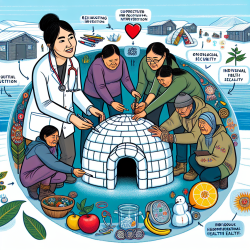Introduction
In the realm of child development, the environment plays a pivotal role in shaping outcomes. A recent study titled "Influences of Social Capital on Health and Well-Being from Qualitative Approach" by Ayano Yamaguchi highlights the profound impact of social capital on health and well-being, particularly among college students in Hawaii and Japan. This research underscores the significance of social capital as a determinant of health, offering valuable insights that can be leveraged to improve outcomes for children in educational settings.
Understanding Social Capital
Social capital refers to the networks, norms, and trust that facilitate cooperation within or among groups. It is a multifaceted construct that can significantly influence health and well-being. The study identifies three dimensions of social capital:
- Bonding Social Capital: Trusting and cooperative relationships among members of a network with shared identities.
- Bridging Social Capital: Relationships of mutual respect among people from different demographic groups.
- Linking Social Capital: Connections that enable individuals to access resources and opportunities beyond their immediate community.
Key Findings
The research conducted through in-depth interviews with college students in Hawaii and Japan revealed significant cultural differences in the perception and impact of social capital. Students in Hawaii exhibited higher levels of trust and community involvement, which correlated with better health and well-being. Conversely, Japanese students reported lower levels of trust and community engagement, which were associated with higher stress and lower well-being.
Implications for Practitioners
For practitioners working with children, these findings highlight the importance of fostering environments rich in social capital. Here are some strategies to consider:
- Encourage Community Engagement: Facilitate activities that promote community involvement and build trust among children and their families.
- Foster Inclusive Environments: Create spaces where children from diverse backgrounds can interact and build bridging social capital.
- Strengthen Support Networks: Encourage the development of strong support networks among peers, families, and educators to enhance bonding social capital.
Encouraging Further Research
While this study provides valuable insights, further research is needed to explore the mechanisms through which social capital influences child development. Practitioners are encouraged to engage in or support research initiatives that investigate these dynamics across different cultural contexts.
Conclusion
Social capital is a powerful determinant of health and well-being. By understanding and leveraging its dimensions, practitioners can create supportive environments that foster positive outcomes for children. To delve deeper into the findings of this research, you can access the original study: Influences of Social Capital on Health and Well-Being from Qualitative Approach.










